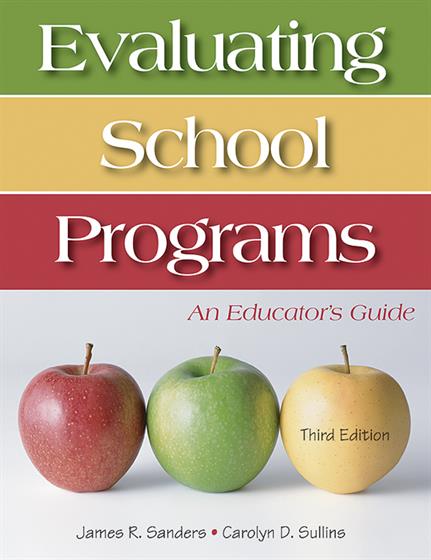James R. Sanders
James R. Sanders is Professor of Education and Associate Director of the Evaluation Center at Western Michigan University. He received his master's degree in educational research from Bucknell University and his PhD in educational research and evaluation from the University of Colorado. He has served as a visiting professor at St. Patrick's College (in Dublin, Ireland), Utah State University, and the University of British Columbia. He is coauthor of Educational Evaluation:Theory and Practice (1973), Practices and Problems in Competency-Based Measurement (1979), Educational Evaluation: Alternative Approaches and Practical Guidelines (1987), and Program Evaluation (2004). He is author or coauthor of numerous articles, monographs, and technical reports in the area of program evaluation. His articles have appeared in Review of Educational Research, Educational Researcher, Educational and Psychological Measurement, Journal of Educational Psychology, Journal of School Psychology, New Directions for Program Evaluation, Evaluation News, Educational Technology, Journal of Research and Development in Education, Educational Measurement, and American Journal of Evaluation.
James R. Sanders has served as director or codirector of training institutes in evaluation for the American Educational Research Association, the American Evaluation Association, the Association for Supervision and Curriculum Development, and the Western Michigan University Evaluation Center. He has served as a member of the board of directors for the Evaluation Network and the American Evaluation Association and on standing committees for the American Educational Research Association, the National Council on Measurement in Education, the National Science Foundation, Phi Delta Kappa, Independent Sector, and the United Way of America. He has directed research and evaluation projects funded by the U.S. Department of Defense, U.S. Department of Education, National Science Foundation, and several state agencies. He has consulted with numerous school districts, private industries, instructional businesses, government agencies, research and development corporations, community agencies, and major universities. From 1988 to 1998, he served as chair of the Joint Committee on Standards for Educational Evaluation, a coalition of 16 professional organizations concerned with the quality of evaluations done in education. He was elected by the American Evaluation Association to serve as President-elect in 2000, President in 2001, and Past President in 2002.


